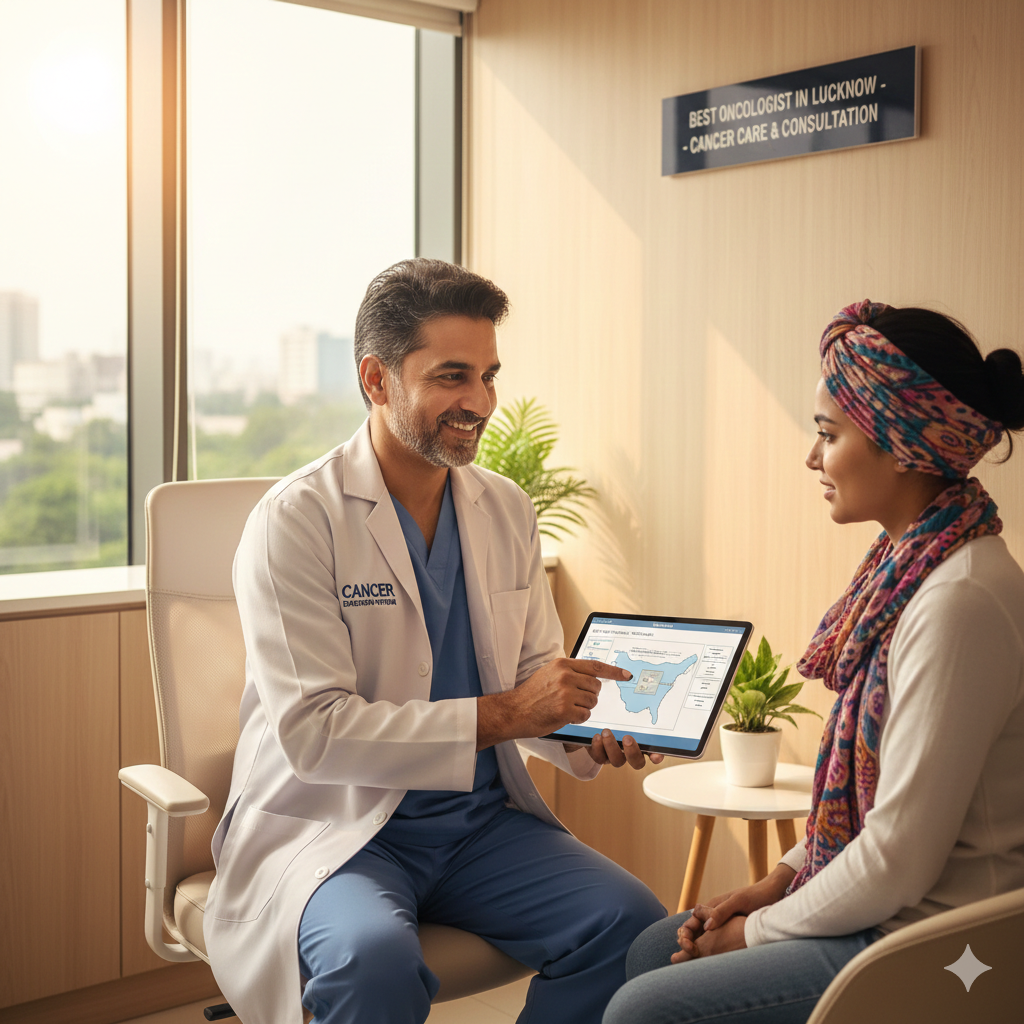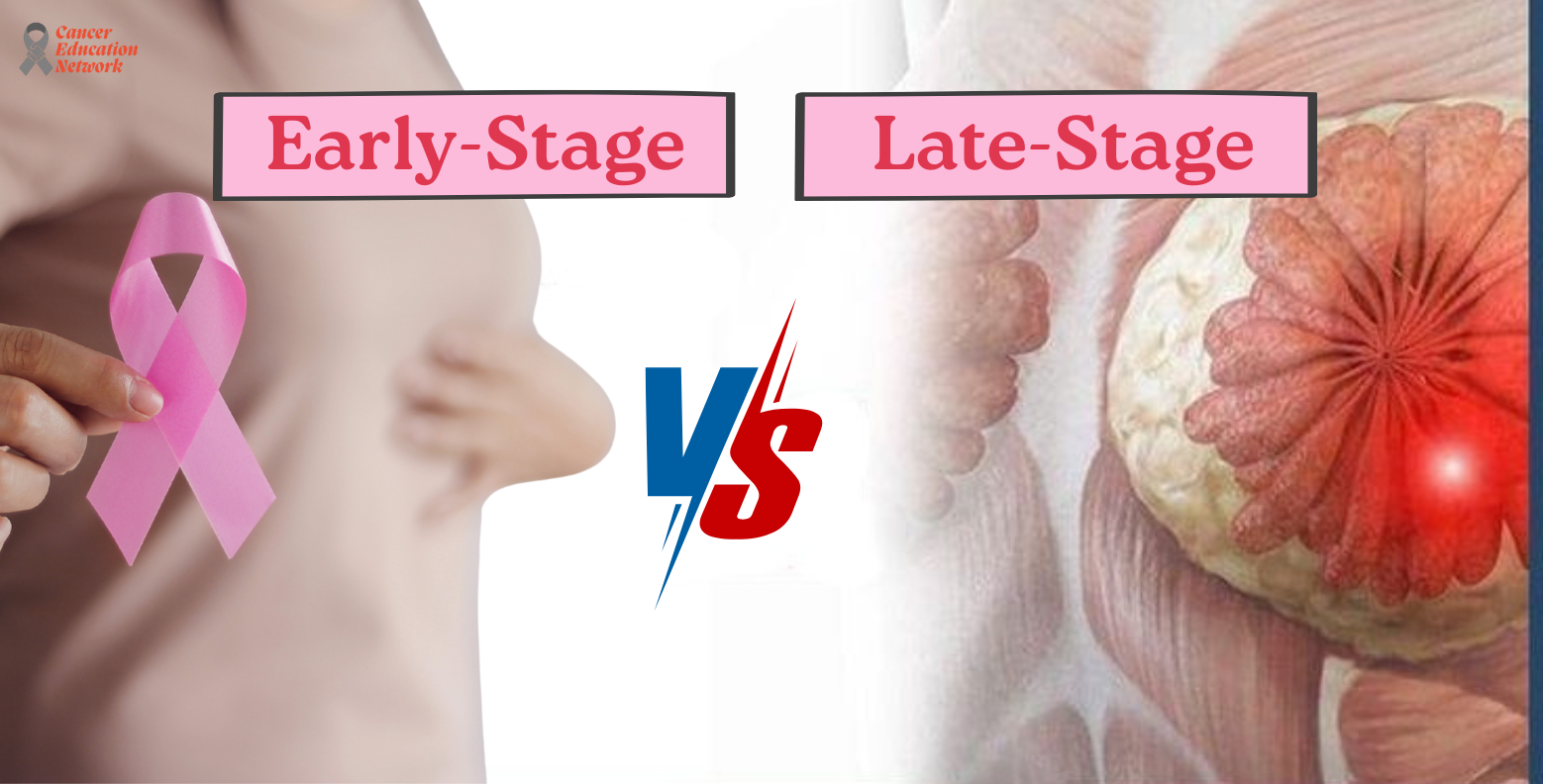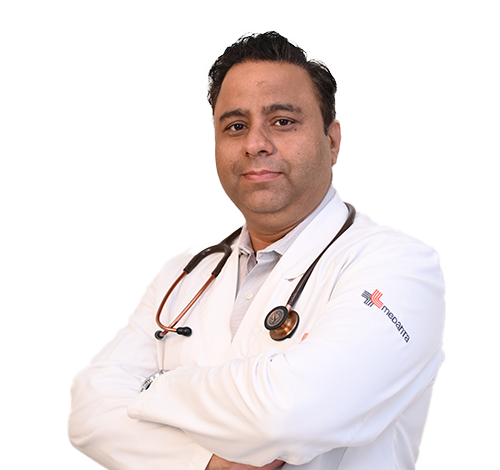The timing of cancer detection plays a critical role in determining the effectiveness of treatment. When a cancer is caught early, treatment options are often more successful, less aggressive, and have fewer side effects. In contrast, late-stage detection typically requires more intensive therapies and carries a higher risk. In this post, we explain in simple, clear language the differences in treatment between early-stage and late-stage cancer. We also weave in guidance, particularly a Breast cancer specialist in Lucknow –Dr. Harshvardhan Atreya and why many turn for expert care.
What Constitutes Early-Stage vs Late-Stage Cancer?
- Early-stage cancer refers to cancers that are limited in size, have not spread (metastasized) to distant organs, and are often contained within their tissue of origin or nearby lymph nodes.
- Late-stage cancer (often called advanced or metastatic cancer) has spread beyond the original site, possibly to distant organs, lymph nodes further away, or surrounding tissues.
Because early-stage cancers are more contained, treatment is generally easier, less extensive, and the likelihood of better survival is higher. Late-stage detection often involves more complex treatment plans, and sometimes the goal may shift from cure to controlling progression and preserving quality of life.
Differences in Treatment Approaches
1. Surgery and Local Therapies
In early-stage disease, surgery is often the main and sometimes only treatment. The tumor can be removed completely, possibly with a margin of healthy tissue, and may not require additional aggressive therapy.
In late-stage cases, complete surgical removal may not be possible because the cancer has spread. Surgery may instead be used to reduce tumor burden (debulking) or relieve symptoms, but not as a curative approach.
2. Radiation and Local Control
For early cancers, radiation therapy may be used after surgery or as a primary method when surgery isn’t feasible. The intent is curative.
In late stages, radiation is more commonly used for symptom control — for example, to reduce pain, shrink tumors pressing on vital structures, or halt bleeding — rather than cure.
3. Systemic Therapies (Chemotherapy, Targeted Therapy, Immunotherapy)
Early-stage cancers might require milder systemic therapy or none at all, depending on the type and risk factors. In some cases, adjuvant therapy (therapy after surgery) is given to reduce recurrence risk.
Late-stage disease nearly always requires systemic therapies, because cancer cells may have spread widely. Treatment may include multiple lines of chemotherapy, targeted drugs, immunotherapy, and combination regimens. The focus is on controlling growth, managing symptoms, and prolonging survival.
4. Supportive and Palliative Care
Early detection often means fewer side effects and less need for intensive supportive care. Patients may recover better, spend less time in the hospital, and maintain a better quality of life.
In late-stage disease, supportive and palliative care become vital. Care focuses on pain relief, managing side effects, nutrition, emotional support, and overall well-being, alongside cancer-directed therapy.
Why Early Detection Matters & How to Choose the Right Expert
Catching cancer early gives you more treatment choices, fewer complications, and higher chances of full remission. Screening tests (mammograms, ultrasounds, blood markers) and awareness of warning signs help with early detection.
If you are seeking a Breast cancer specialist in Lucknow, choosing a qualified expert is vital. Many patients in Lucknow and surrounding areas opt for the best cancer doctor in Lucknow-Dr. HarshVardhan Atreya, who is a reputed medical and hemato-oncologist with years of experience. Dr. Atreya is affiliated with Medanta Lucknow and is known for offering patient-centred care and holistic treatment plans.
When selecting a cancer specialist, here are some key points to keep in mind:
- Look for doctors with specialization in your cancer type (for example, breast cancer).
- Check their hospital affiliations and access to multidisciplinary support (e.g. radiology, pathology, surgery).
- Review patient testimonials and outcomes.
- Evaluate whether the specialist keeps up with modern treatments (targeted therapy, immunotherapy).
- Ensure good communication: a doctor who explains options, risks, and outcomes in clear language.
Dr. HarshVardhan Atreya fits many of these criteria and is frequently regarded as one of the trusted names when people search for the best cancer specialist in Lucknow
Final Thoughts
The difference between early-stage and late-stage detection isn’t just a medical classification — it heavily impacts how cancer is treated, what options are possible, and ultimately, patient outcomes. Early detection opens the door to more effective, less invasive treatments, whereas late detection often brings complex, aggressive therapies and a greater emphasis on symptom management.
If you or a loved one needs guidance or consultation, especially for breast cancer, seeking a specialist early is key. In Lucknow, best cancer doctor in Lucknow-Dr. HarshVardhan Atreya is a name many trust for compassionate, up-to-date cancer care. By prioritizing early screening, choosing the right expert, and following a personalized treatment plan, patients can maximize their chances of successful outcomes.
FAQs
Q1. Why is early-stage cancer detection important?
Early detection allows less aggressive treatment, higher survival rates, and better quality of life compared to late-stage detection.
Q2. What are the main treatment differences between early and late-stage cancer?
Early stages often rely on surgery and limited therapy, while late stages require chemotherapy, targeted therapy, immunotherapy, and palliative care.
Q3. Who is the best cancer specialist in Lucknow for breast cancer?
Dr. HarshVardhan Atreya is widely regarded as the best cancer doctor in Lucknow and a trusted Breast cancer specialist in Lucknow.
Q4. Can late-stage cancer still be treated successfully?
Yes, while cure is more difficult, late-stage cancer can often be managed with systemic therapy and palliative care to improve survival and comfort.
Q5. How do I choose the right breast cancer specialist in Lucknow?
Look for expertise in breast oncology, access to advanced treatments, and strong patient reviews. Dr. HarshVardhan Atreya is a leading choice.
Q6. Does early detection always guarantee a cure?
Not always, but it significantly increases the chances of successful treatment compared to detecting cancer at a later stage.












